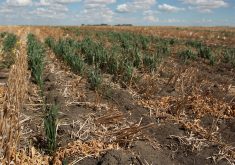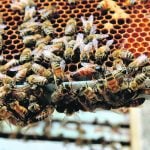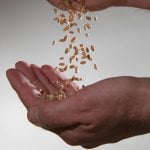VANCOUVER – The uncertainty over whether Canadian dairy farmers will be allowed to use a controversial growth hormone in their herds appears certain to drag on for at least another year.
“I think it will be at least 1999,” said Richard Doyle, executive secretary of Dairy Farmers of Canada. “I don’t think that’s a problem for us. Why should we be boy scouts? It may be OK but we don’t really need it.”
The hold-ups now are Ottawa-based and bureaucratic.
After complaints were made last year that Health Canada’s drug review process is flawed and biased toward companies promoting the drugs, the federal auditor-general announced he will do an audit of the health protection branch and its licensing procedures.
Read Also

U.S. loses out on sales of soybean to China
U.S. soybean exporters risk missing out on billions of dollars worth of sales to China this year as trade talks drag on and buyers in the top oilseed importer lock in cargoes from Brazil.
The bovine somatotropin issue will be one of the test cases studied.
“We don’t expect the results of that until late 1998 at the earliest,” said Doyle.
“And I think Health Canada is smart enough not to make a decision while there is a cloud.”
He said the dairy farmer lobby has made it clear to the government that an early decision on whether to use a drug in milk production would be risky. It could provoke a consumer reaction against dairy products.
“We have told the government that if they bring the decision out while there is this issue of credibility, we will hold them responsible for any losses we have. We think it could be well in the millions.”
Two committees appointed
Meanwhile, Health Canada has appointed two external review committees to study the BST issue, including the scientific evidence available on the safety issue and the way the licensing process has been handled.
“One can speculate that results would not become available for the next nine to 12 months,” the DFC annual policy convention was told last week.
And the international food labeling and assessment group, the Codex Alimentarius, has more work to do in its review of the safety of the hormone drug.
DFC has demanded that all those processes be completed, the product be declared safe and the public informed of that before any decision to license is made.
BST products, when injected into dairy cows, can increase lactation and per-cow production.
It is a synthetic version of a naturally occurring hormone.
More than four years ago, Monsanto applied to have a BST product licensed for use in Canada and it has been tied up in the Health Canada review ever since.
BST products are licensed for use in the United States.
















